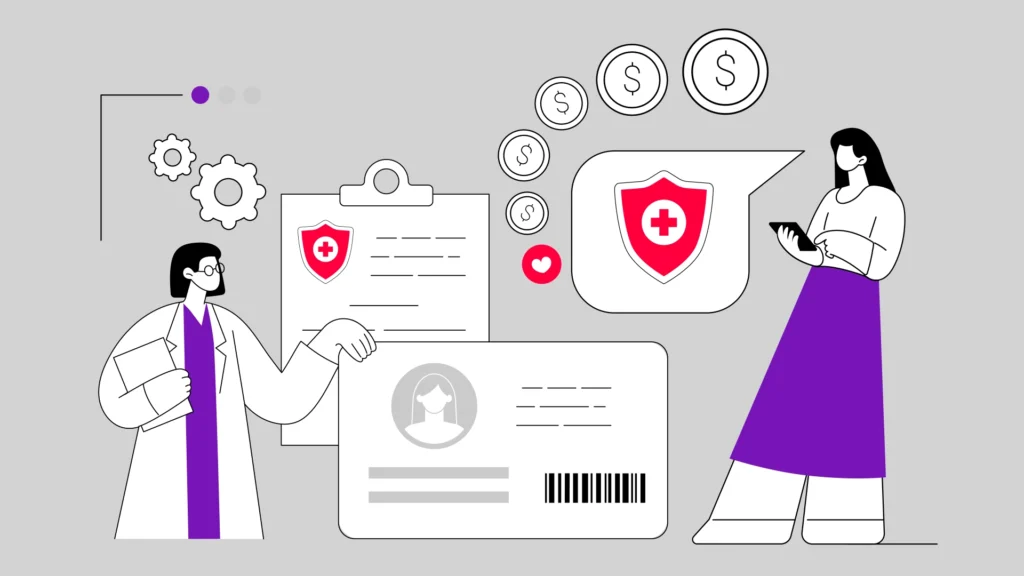Improving the patient experience should be a top priority for all health systems as it can drive greater health outcomes, patient retention, and additional revenue, among other benefits.
At a Glance:
-
Shift towards digital-first healthcare: Healthcare organizations adopting a digital-first mindset are meeting the expectations of today’s patients. By focusing on appointment scheduling, convenient access to care, and other mobile or online features, healthcare organizations can improve the patient experience and stay ahead of the curve.
-
Positive patient experience leads to better outcomes: Research consistently shows that positive patient experiences correlate with better health outcomes.
-
Business impact of patient experience: Cultivating positive patient experiences is not only good for patients but also for healthcare providers’ business success, leading to increased patient retention, higher profit margins, reduced turnover, and lower medical malpractice risk.
When Colleen Prescott woke up, she noticed that the muscles on the left side of her face were weak and drooped.
A week earlier, she had undergone major abdominal surgery and was still heavily sedated with pain medications. She didn’t want to spend half an hour on hold trying to reach her doctor. She needed an answer — and fast.
It’s 2025, and patients like Colleen expect quick, seamless interactions their healthcare providers through their preferred methods of communication — especially in dire situations like this one.
Consumers are accustomed to convenience and time-saving factors across all industries, and healthcare organizations cannot ignore this shift. Adopting a digital-first mindset will be the key to improving the patient experience.
Luckily for Colleen, her provider had recently implemented the Artera platform, so she was easily able to text the office. Moments later, a nurse responded and urged her to go to the emergency room because her symptoms mirrored those of a stroke.
“I wouldn’t have called my doctor and sat on hold for half an hour — I probably would have just ignored it,” Prescott* says. “Texting allowed me to reach out quickly and get an answer right away.”
Patient experience begins before the appointment
Patient experience begins before an appointment even occurs — for Prescott, it happened while she was still at home in bed.
“We used to think the patient experience began when they walked in the door, or maybe when they called to make an appointment, but now it’s when they start surfing the net,” said Dr. Tom Lee, Chief Medical Officer at patient engagement firm Press Ganey, in an April 2021 interview.
Like many other aspects of everyday life, healthcare has shifted to a digital space. Moving forward, the healthcare organizations that thrive will be those that are prepared to meet patients in the long-term. Building out a digital, patient-centric care experience that focuses on appointment scheduling, convenient access to providers, and online or mobile bill pay will be key to staying ahead of the curve.
According to a 2021 Press Ganey report, patients’ likelihood to recommend their healthcare experience to others has decreased nationally since the COVID-19 pandemic. The greatest decreases in scores were largely influenced by patients’ ability to access timely care, including phone response, ability to book an appointment when needed, and seeing a doctor as quickly as possible.
Nevertheless, according to research published by Sage Growth Partners, a Baltimore-based healthcare consultancy, only 39 percent of health system C-suite executives report using text messaging to improve the patient experience. Even fewer are texting patients with truly conversational messaging. This presents a clear opportunity for providers to strengthen the patient experience.
Better patient experiences lead to better outcomes
Research consistently confirms that positive patient experience correlates with better health outcomes. One example is a 2010 study that found that patient satisfaction was positively correlated with 13 of 14 measures of success for treatment of heart attacks. Additionally, for every 25 percent increase in patient satisfaction scores, there was an equivalent 25 percent change in predicted survival.
The researchers concluded that patients are good discriminators of the type of care they receive. A 2020 medical study described patients themselves as “foundational” enablers to primary care teams tasked to deliver high-quality primary care, thus affecting the patients’ healthcare journeys. When the quality of patient experience suffers, patients don’t fare well.
A more recent finding from The Beryl Institute also connects positive patient experience to positive healthcare outcomes, including during the pandemic.
Results are similar for patients with chronic conditions. For example, diabetic patients who report better communication and overall patient experience with their providers also have better blood sugar control and fewer functional limitations, according to a study published in the Journal of General Internal Medicine.
Better patient communication yields better experiences
A 2021 healthcare consumer study highlights the need for healthcare organizations to create and implement effective processes designed to improve patient experience. One particular area ripe for enhancement is patient-provider communications.
Healthcare organizations must build and use communication protocols where healthcare consumers “feel listened to and communicated with effectively.”
When Prescott landed in the ER, she was quickly diagnosed with Bell’s Palsy, or idiopathic facial paralysis. While it’s not as serious as a stroke, it’s not something to ignore either — in some cases it can result in permanent contraction of the facial muscles. The sooner it’s treated, the better the prognosis.
“If I hadn’t texted my doctor and received treatment immediately, I could have had permanent nerve damage and a lifelong facial deformity,” she says. “Being able to reach my doctor quickly made all the difference.”
Patient experience is good for business
Cultivating positive patient experiences makes sense for patients and for providers. Here’s why:
- Patients are five times more likely to select a practice where they had a positive patient experience than one with a strong consumer marketing presence, according to a 2018 Press Ganey report.
- Hospitals with better patient experience ratings tend to have 50% higher profit margins than average hospitals, Accenture research found.
- Similarly, a 2016 Deloitte study found that hospitals with excellent HCAHPS scores had an average net margin of 4.7%. Hospitals with low scores had average margins of just 1.8%.
- A Vanguard Communications survey found that 96% of online patient complaints center around customer service — not quality of care.
- 90% of patients consult online provider review websites before booking an appointment, a 2020 Doctor.com survey suggests.
- 51% of patients would switch healthcare providers if it meant they’d receive great customer service, according to an Accenture report.
- Good patient experience is associated with lower medical malpractice risk. On a scale of one to five, with one being “very poor” to five being “very good,” every point increase in score reduces the risk of malpractice by 21.7 percent.
- Efforts to improve patient experience also improve employee satisfaction and reduce turnover. Northwestern Memorial Hospital in Chicago launched a patient satisfaction program that resulted in improved staff satisfaction, productivity, internal and external recognition, and a 4.7 percent decrease in employee turnover.
- Positive experiences contribute to increased patient retention. Happy patients are three times more likely to remain in your practice than patients who have the poorest quality relationships with their providers.
For Prescott, being able to quickly and easily reach her provider not only resulted in a better health outcome but also yielded fierce patient loyalty.
“The experience was so positive — just what they were able to do for me without me really lifting more than a finger to reach out — I’ll be loyal to them forever,” Prescott says.
Why is Patient Experience Important?
As patients continue to have more options for their healthcare providers, offering a patient experience that allows your organization to stand out is crucial to remaining competitive. Patients today want their healthcare experience to resemble their consumer experience that they see in many other industries. They not only want convenient, self-service features – they expect them.
Even beyond that, however, patient experience is important because it directly impacts quality of care, patient engagement, trust, adherence to treatment plans, health outcomes, healthcare provider reputation, and provider bottom line – something that took a took a strong hit over the past few years. Prioritizing a positive patient experience is not only beneficial for patients but also for healthcare organizations and the healthcare system as a whole. So, in 2023, make sure improving your patient experience is on top of your list.
*name changed to protect patient identity



